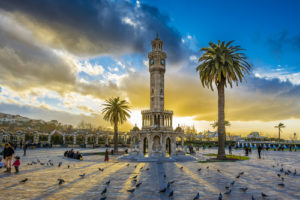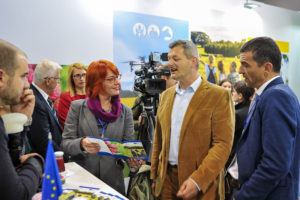
Technical Assistance for Promoting Social Inclusion in Densely Roma Populated Areas
It’s an obvious fact that there is a need to increase social inclusion in heavily populated areas, particularly in Rome, mainly by facilitating their entrance into the formal labour market. Within this context, the project aimed to support Rome’s population by improving the quality of education delivery, vocational

Technical Assistance to Support the Implementation of the Rural Development Sector Development Programme (Phase 1 + 2)
After the positive vote of the Turkish Cypriot community in the 2004 referendum to reunite the island, the European Council decided to end the isolation of the Turkish Cypriot Community and facilitate its integration with the EU. Therefore, the purpose of the project was to improve socio-economic conditions

Support to the Solution of Economic and Social Integration Problems in İstanbul, İzmir, Ankara and Bursa as Major In-Migrant Destinations (İGEP)
Cities with high demographic density require reduced urban disparities through enhanced economic, social and cultural opportunities for all citizens. In this respect, the purpose of the project was to provide support to the municipalities of İstanbul, Ankara, İzmir and Bursa to increase institutional capacity to reduce socio-economic integration

Capacity Building for the Alignment with the Acquis in the areas of Agriculture, Rural Development, Food Safety, Veterinary and Phytosanitary Policy
This project improves the planning, legislative, and institutional capacity of Serbia’s Ministry of Agriculture , Forestry and Water Management part of the country’s preparations for EU membership. Project supports Serbia in the EU accession process through the preparation of the Negotiation Positions and drafting or amending the national

Technical Assistance for Supporting the Solution of Economic and Social Integration Problems in Diyarbakır, Şanlıurfa, Gaziantep, and Erzurum, as Major In-Migrant Destinations
Rapid migration in major urban areas, namely Diyarbakır, Şanlıurfa, Gaziantep and Erzurum (DGES), have adverse impacts in Turkey. To reduce these unfavourable effects, EKOSEP aimed to support social integration and environment-related infrastructure problems due to migration in the selected provinces in a multi-actor manner. Furthermore, it aimed to

Local Experts for Monitoring the Grant Contracts Being Implemented Under the Reproductive Health Programme
The financing agreement for the “Programme of Reproductive Health in Turkey” (RHP) was signed in December 2001 and started in January 2003. Within the context of the programme’s grant component, based on two calls for proposals, 88 projects were awarded a total value of €19.9 million. External assessors

